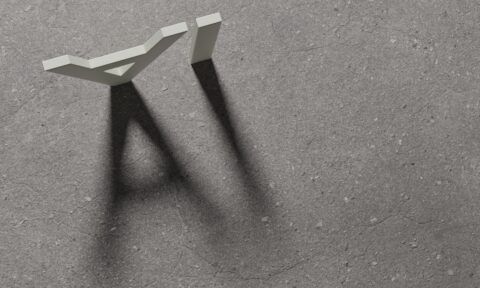Analysis and Design of Submarine Structures – 5 Day
- Comprehensive coverage of submarine structural design and material behavior.
- Target audience includes engineers, operations managers, and technologists.
- Focus on philosophy, essentials, and strength formulations for design.
- In-depth lectures on submarine design, finite element analysis, and theory.
- Hands-on experience and tutorials on fatigue analysis and fracture mechanics.
Overview
The Submarine Structures Training course focuses on providing comprehensive coverage of structural design for submarines, emphasizing material selection, fabrication, and toughness to withstand high dynamic loads. The course is designed for Engineers, Operations managers, Fabricators, Applied Scientists, and Technologists interested in submarine design. Lectures cover topics such as buckling under pressure, materials behavior, finite element analysis, submarine theory, design codes, structural reliability, fatigue analysis, and fracture mechanics. The course spans 5 days and is led by experts in the field.
Who should attend
Engineers, Operations Managers, Fabricators, Applied Scientists, Technologists
Course Content
ABOUT THE COURSE
Most submarine designs are weight critical, especially as operational diving depth increases. It follows that designers will strive to select an available high strength low density material compatible with good fabricability and toughness. Toughness is required not only for the usual low temperature reasons, but also to resist high dynamic loads from depth charge attack. High strength steels have proved to be reasonably satisfactory, the main limitation being how to achieve adequate weldability and toughness for military submarines with steels above about 700N/mm2 proof stress. More exotic materials would be considered for depths exceeding 1000m say. At really great depths the required pressure hull thicknesses can become so large that buckling ceases to be a problem even with low modulus materials and frames can effectively be dispensed with. In many respects the design then becomes simpler and the conventional safety factor can be reduced. This course is meant to provide comprehensive coverage of structural design and also concentrate on philosophy and underlying essentials and strength formulations for design.
WHO SHOULD ATTEND
The course is intended for Engineers, Operations managers, Fabricators, Applied Scientists and Technologists interested in submarine design.
COURSE OUTLINE
Day 1
09.00- 09.20 Delegate Registration
09.30- 10.30 Lecture 1: Introduction to Course Structure
Prof Purnendu Das
10.30-11.00 Break
11.00-12.30 Lecture 2: Buckling of Shells Under External Pressure
Prof Purnendu Das
12.30-13.30 Lunch
13.30-15.30 Lecture 3: Materials Behaviour and Fabrication Tolerance
Prof Purnendu Das
15.30-16.00 Break
16.00-17.00 Lecture 4: Materials Behaviour: Tutorial
Prof Purnendu Das
Day 2
09.00-10.30 Lecture 5: Submarine Design- Various Failure Modes I
Prof Purnendu Das
10.30-11.00 Break
11.00-12.30 Lecture 6: Finite Element Analysis I
Dr Derek Graham
12.30-13.30 Lunch
13.30-15.00 Lecture 7: Finite Element Analysis II
Dr Derek Graham
15.00-15.30 Break
15.30-17.00 Lecture 8: Finite Element Analysis III
Dr Derek Graham
Day 3
09.00 –10.30 Lecture 9: Submarine Theory I
Prof Purnendu Das
10.30-11.00 Break
11.00–12.30 Lecture 10: Submarine Theory II
Prof Purnendu Das
12.30-13.30 Lunch
13.30-15.00 Lecture 11: Design Codes Examples I – PD 5500-2015
Prof Purnendu Das
15.00-15.30 Break
15.30-17.00 Lecture 12: Design Codes Examples II – PD 5500-2015
Prof Purnendu Das
Day 4
09.00 –10.30 Lecture 13: Structural Reliability
Prof Purnendu Das
10.30-11.00 Break
11.00-12.30 Lecture 14: Structural Reliability & Application to Submarine Structures
Prof Purnendu Das
12.30-13.30 Lunch
13.30-15.00 Lecture 15: PD 5500-2015 Tutorial I
Prof Purnendu Das
15.00-15.30 Break
15.30-17.00 Lecture 16: PD 5500-2015 Tutorial II
Prof Purnendu Das
Day 5
09.00 –10.30 Lecture 17: Hands on experience on submarine design
Prof Purnendu Das
10.30-11.00 Break
11.00-12.00 Lecture 18: Fatigue Analysis
Dr Bostjan Bezensek
12.00-13.00 Lunch
13.00-14.30 Lecture 19: Fracture Mechanics – I
Dr Bostjan Bezensek
14.30-15.00 Break
15.00-16.30 Lecture 20: Fracture Mechanics – II
Dr Bostjan Bezensek
Lecturers CVs:
Purnendu Das. BE, ME, PhD, C.Eng, C.MarEng, FRINA, FIStructE, FIMarEST has been the Director of ‘ASRANet Ltd’ since February 2006. He retired as a Professor of Marine Structures in the Department of Naval Architecture & Marine Engineering at the University of Strathclyde, UK in September 2011. Past EU projects were MARSTRUCT (a network of excellence on Marine Structure) and SHIPDISMANTL (a cost effective and environmentally friendly dismantling of ship structures). Past industrial projects included work from the UK Health and Safety Executive (HSE), MoD UK, Subsea-7 UK, Shell, Woodgroup and US Navies etc. He was the principal investigator of many EPSRC projects. Before joining the University of Glasgow in 1991 he worked with British Maritime Technology as Principal Structural Engineer (1984-91). He is the author of more than 250 publications, including contract reports and more than 60 journal papers and is a member of the editorial boards of the ‘Journal of Marine Structures’, ‘Journal of Ocean and Ship Technology’ and ‘Journal of Ocean and Climate System’ and the Journal of Ship Mechanics amongst others. His areas of research include limit state design and analysis & reliability analysis of ship & offshore structures. Purnendu Das has wide ranging industrial and academic contacts and has advised and supervised 20 PhD students, to his credit. Details of visits and collaborations include his various sabbatical study periods spent at University of California, Berkeley, USA (July – September 1996), at Lloyd’s Register of Shipping (August 1997), Kockums Ltd (July 1998) and spent some time at Instituto Superior Técnico (IST), Lisbon (July 2000). He is running about 20 CPD courses which are attracting many people from different industries. These courses are on ‘Fatigue & Fracture Analysis’, ‘Ships at Sea’, ‘Advanced Analysis and Design of Offshore Structures’, ‘Offshore Floating System Design’, ‘Structural Response under Fire and Blast Loading’ and ‘Design of Pipelines and Risers’ amongst others. He was a member of ISSC (International Ship and Offshore Structure Congress) for the periods of 1991-97 and 2003-2006. He was a member of the OMAE (Offshore Mechanics and Arctic Engineering) Organising Committee on ‘Safety and Reliability’. He is running about 15 biennial international conferences on various themes like Risk, Reliability, Advanced Analysis & Design of Engineering Structures, including marine structures. He was a member of the “Research Committee” of Structural Engineers (IStructE) during 2012-2015. He was a visiting Professor at IST Surabaya, Indonesia from July 2015 for one year. He is now a visiting professor at the Wuhan University of Technology, China from July 2016.
Derek Graham, B.Sc., Ph.D., CEng., MIMech Principal Engineer, Platform Design QinetiQ. He has worked in the field of Submarine Structures at QinetiQ and its predecessor organisations at Rosyth since 1991. He has primarily been involved in the development and application of finite element analysis methods to a range of submarine structures applications. Work on the prediction of non-linear static collapse has investigated the effects of shape imperfection, residual stresses, and material behaviour and provided validation against legacy test models. This has contributed to the design methodology of current and future submarines. He has worked on low and high frequency dynamic analysis in the context of environmental loading including wave loading, blast and explosive loading and has worked in composite materials. Currently he is involved in developing practical analyses of important effects including the residual stresses and distortions caused by welding and weld repair, fracture and fatigue crack growth and fluid structure interactions.
Bostjan Bezensek Dipl. Ing, PhD, CEng. Dr Bezensek holds an undergraduate degree in Mechanical Engineering from University of Maribor, Slovenia and a Doctor of Philosophy degree in fracture mechanics and failure assessment from University of Glasgow, Scotland, UK.Dr Bezensek was a lecturer at the University of Glasgow, Department of Mechanical Engineering between 2005-2009 and has taught courses on materials, mechanics of solids and fracture mechanics to undergraduate students. He was then the principal engineer at Hunting Energy Services (UK) Ltd who specialises in the premium connections for the oil & gas ‘upstream’ industry and is now key member of the pipeline integrity group at Shell UK Ltd. Dr Bezensek is recipient of several grants and awards from professional organisations and industry. In 2007 he was awarded the Japan Society for Promotion of Science post-doctoral grant and spent 6 months in Japan on sabbatical leave, collaborating closely with the Hitachi Research Laboratory, Hitachi Ltd on integrity of nuclear pipes with multiple flaws.In 2009 Dr. Bezensek became Chartered Engineer and member of the ASME Boiler and Pressure vessel code Section XI working groups on Pipe flaw evaluation and on Flaw evaluation and a member of the British Standard’s BS7910 committee WEE37 and sub-committee on fracture. Dr. Bezensek has been leading the effort in revising flaw interaction and combination rules in the BS 7910: 2013 edition. He also contributes to the R6 fitness-for-service code on this topic. Dr Bezensek has been active in application of fracture mechanics to pipes and pressure vessels for over 10 years. He is an international authority on assessment of multiple flaws and regularly reviews and contributes to the international peer reviewed journals and to the ASME Pressure Vessels and Piping conference. In 2011 and 2012 Dr Bezensek was the lead organiser of the Codes & Standards track in the aforementioned ASME conference.
Past Participants
• CSBC Corporation, Taiwan
• Marine Systems PVT, Pakistan
• STM SAVUNMA TEKNOLOJİLERİ MÜHENDİSLİK VE TİCARET A.Ş, Turkey
• BMT Defence Services
• Italian Navy
• Norwegian Navy
• Netherlands Navy
• Indian Navy
• US Navy
• Canadian Navy
• Lloyd’s Register of Shipping, UK
• Korean Register of Shipping
• BAE Systems
• Ministry of Defence
• Frazer-Nash Consultancy
• Babcock International
• Qinetiq
Duration:5 Days
Cost:£1195 + Vat



